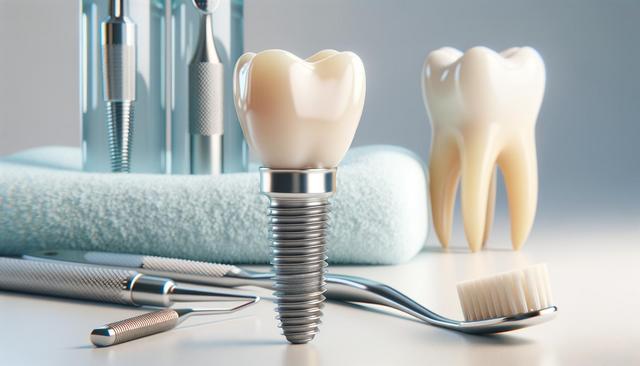What Are Permanent Dental Implants?
Permanent dental implants are a long-term solution for individuals who have lost one or more teeth due to decay, injury, or disease. Unlike removable dentures, these implants are surgically placed into the jawbone and serve as a stable foundation for artificial teeth. Made typically of titanium, the implant fuses with the bone through a process called osseointegration, providing durability and strength similar to natural tooth roots. Once the implant has integrated into the jaw, a dental crown is attached, which mimics the appearance and function of a natural tooth.
This modern dental solution offers numerous benefits, especially in terms of stability, aesthetics, and oral health. With proper care, permanent dental implants can last for decades, making them a preferred option for many patients seeking a reliable and realistic replacement for missing teeth.
The Procedure: What to Expect
The process of getting permanent dental implants involves several stages, usually spread out over a few months. It begins with a comprehensive dental examination, including X-rays and possibly 3D imaging, to assess the condition of the jawbone and plan the optimal placement of the implant. If the jawbone is not strong or dense enough, a bone graft may be required before implantation.
The procedure typically includes these steps:
- Initial consultation and treatment planning
- Implant placement surgery
- Healing period (3-6 months for osseointegration)
- Abutment placement (connector for crown)
- Attachment of the permanent crown
Each stage is crucial for the success of the implant. Recovery times and specific procedures may vary depending on individual health conditions and the number of implants required. Local anesthesia or sedation is commonly used during surgery to ensure patient comfort.
Benefits of Choosing Dental Implants
Dental implants offer a range of benefits that go beyond simply replacing missing teeth. One of the most significant advantages is the restoration of chewing ability, allowing patients to eat a wide variety of foods without discomfort or worry. Additionally, implants help maintain the structure of the jawbone, preventing bone loss that typically occurs when teeth are missing.
Other notable benefits include:
- Enhanced facial appearance and smile aesthetics
- Improved speech clarity compared to dentures
- No need to remove implants for cleaning
- Protection for adjacent teeth, which remain unaffected
- Long-term reliability with proper oral hygiene
These features make implants a compelling choice for those looking to regain not only functionality but also confidence in their everyday interactions.
Candidates for Permanent Dental Implants
While dental implants are suitable for many individuals, not everyone is an immediate candidate. Generally, good candidates are those with healthy gums, sufficient bone density in the jaw, and a commitment to maintaining oral hygiene. Age is typically not a limiting factor, but certain medical conditions, such as uncontrolled diabetes or heavy smoking, can affect healing and implant success rates.
Factors that determine candidacy include:
- Overall oral health
- Bone volume and quality
- Absence of gum disease
- Willingness to follow post-operative care instructions
- Non-smoker or willingness to quit
A thorough evaluation by a dental professional can determine whether a patient is a good fit for implants or if preparatory treatments are needed first, such as bone grafting or periodontal therapy.
Care and Maintenance of Dental Implants
Maintaining dental implants is similar to caring for natural teeth. Daily brushing and flossing are essential to prevent plaque buildup and protect the surrounding gum tissue. Regular dental check-ups are also important to monitor the health and stability of the implant and detect any potential issues early.
To keep implants in good condition, consider the following tips:
- Use a soft-bristle toothbrush and non-abrasive toothpaste
- Floss or use interdental brushes to clean between teeth
- Avoid hard foods that could damage the crown
- Refrain from smoking, which can compromise implant success
- Visit your dentist at least twice a year
With proper care, dental implants can last many years, offering a dependable and aesthetically pleasing solution for tooth loss.
Conclusion: Is a Permanent Dental Implant Right for You?
Permanent dental implants provide a stable, natural-looking, and long-lasting alternative to removable dentures or bridges. They are particularly beneficial for those seeking to restore full chewing function and enhance their smile aesthetics. While the process involves multiple steps and a commitment to oral care, the results can be life-changing for many patients. If you’re considering this treatment, consult with a qualified dental professional to determine whether dental implants align with your oral health needs and personal goals.




Leave a Reply